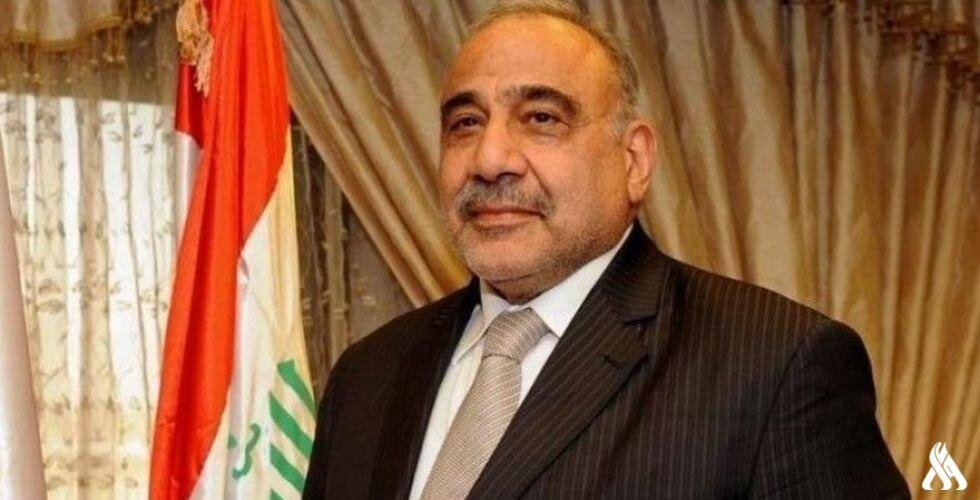Intensifying pressure on Abdul Mahdi to resign

Domestic and foreign pressure for ousting Iraqi Prime Minister Adil Abdul Mahdi appear to have increased more than ever.
Iraq’s President Barham Salih has also recently made a statement in this regard, saying, “The prime minister had previously agreed to submit his resignation if the blocs agree on an acceptable replacement in order to adhere to constitutional and legal frameworks”.
Condemning the violence against the protesters, Salih claimed that he will stand beside the Iraqi people.
The prime minister added that he is against quelling the protesters. Addressing the protesters, he said the Iraqi people and security forces are on the same side. Noting that forcible action is not the way to deal with the protestors, Salih said that reforms is the only solution.
There are two-point regarding the remarks by the Iraqi president. The first point is that Abdul Mahdi has only announced his consent for resignation, and considered its dependent on the agreement of political parties about a replacement. Therefore, as some foreign media have suggested, a resignation of Abdul Mahdi cannot be considered inevitable.
The second point in Salih’s remarks is that Adul Mahdi is well aware of Iraq’s political situation. He knows that even if he resigns, political parties will not come to an agreement about a replacement, at least in the short run, and this matter will emerge as a serious problem. The prime minister has agreed to “conditional resignation” to prevent Iraq from facing a “power vacuum”.
Currently, it is obvious that domestic and foreign pressure has increased on the Iraqi government to make Abdul Mahdi step down. Domestic pressure mainly comes from a particular political current that has repeatedly asked for the resignation of the prime minister and hold an early election. In such a situation, Iraqi Shi'ite leader Muqtada al-Sadr had earlier announced if Abdul Mahdi did not step down, Iraq would become like Yemen and Syria.
The pressure by political parties and figures such as Muqtada al-Sadr on the prime minister is taking place while the government has taken great steps to carry out reforms, and has also established good cooperation with the parliament. To this end, one of the latest government’s reform plans includes training job seekers, reducing retirement age, cutting taxes for small businesses and industries and removing their income tax.
According to a recent statement issued by the government, it is stated in the new reform package that the Ministry of Energy should train job seekers and provide them with financial aid so that they can get a job in government organizations, or help them to launch small businesses. The government put Civil Servants Pension Organization in charge of developing a plan to reduce retirement age in government jobs and to provide more employment opportunities for the youth.
Last week, Abdul Mahdi released an important message about reforms, stating that the government had emphasized the importance of creating a special anti-corruption court to prosecute the corrupt.
In addition to domestic pressure, the U.S. applied its pressure since the very first days of the protests to force Iraq’s prime minister to resign. Americans have played an important role in Iraq’s uprising through their embassy in Baghdad.
Earlier, the Lebanese newspaper Al-Akhbar wrote, “Attempts for political coup are supported by the United States.” The newspaper also said the cost of the coup is $150 million, which Saudi Arabia has pledged to provide, and its implementation is on Iraqi civil society organizations backed by the U.S. embassy in Iraq.
The U.S. ambassador to Iraq, Matthew Tueller, is also involved in foreign pressure on the prime minister. This matter can be easily understood in the remarks of the ambassador about the recent unrest. For example, Tuller recently said that it “appears inevitable” that Abdul Mahdi would resign.
In addition, about three weeks ago the American newspaper Task and Purpose revealed Tuller’s correspondence with Washington officials about Abdul Mahdi’s resignation.
According to the newspaper, in a classified email sent to U.S. military leaders on Saturday morning, Tueller wrote, “We assess Moqtada al-Sadr is seeking to take advantage of this crisis by giving demonstrators a dramatic response to their anger against the government and strengthening his own hand. Subsequently, former PM Haider al-Abadi also issued a call for early elections. With these drastic developments, the resignation of [Adil Abdul-Mahdi] by as early as today appears inevitable and Iraq's government will enter unchartered [sic] and fraught political territory.”
In view of all these things, it is clear that domestic and foreign pressure is intensifying on the government.
Leave a Comment